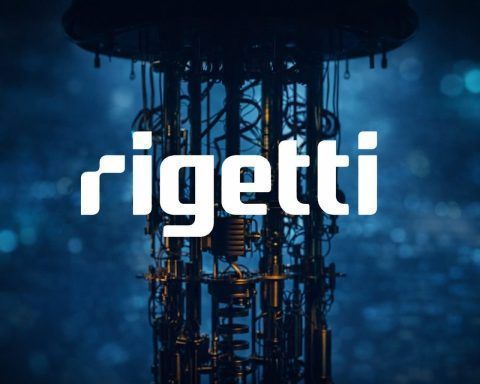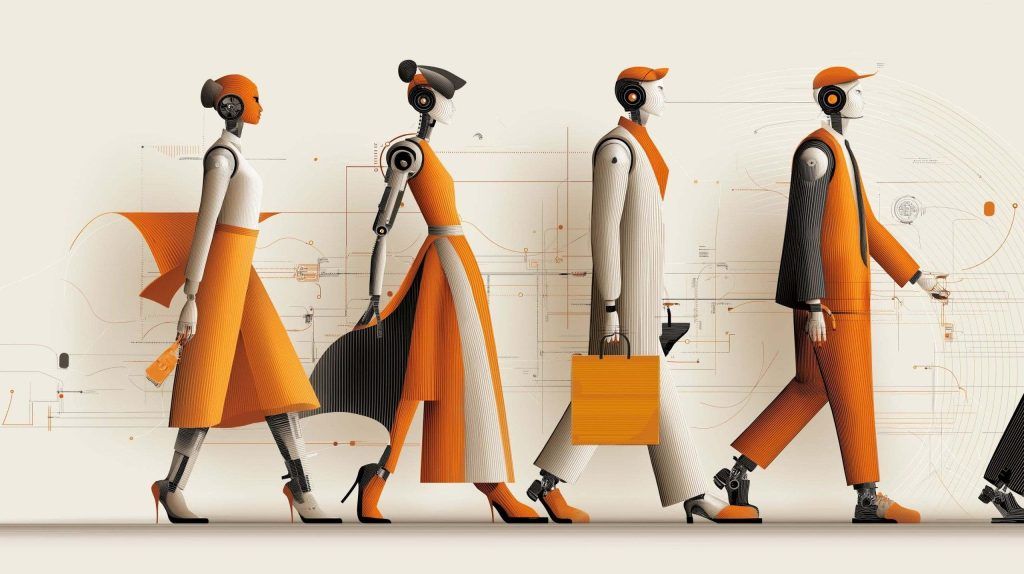- The World Economic Forum’s Future of Jobs Report 2025 projects that 44% of worker skills will change by 2027 due to AI and related trends.
- In 2025 more than 80,000 job ads mentioned generative AI expertise, up from 3,700 in 2010.
- AI-related job listings grew roughly 29% annually over the past 15 years, with over 50% of AI-skilled postings in non-tech fields in 2024.
- AI skills are associated with about 28% higher salaries on average versus similar roles without AI requirements.
- Candidates optimizing resumes with AI-driven keyword suggestions report landing 3× as many interviews.
- GitHub Copilot helps developers complete tasks 55% faster, with 73% of users staying in the flow and 87% saving mental energy on repetitive work.
- 98% of small businesses are using some form of AI-driven software, delivering quick productivity gains in scheduling, data entry, and more.
- A Salesforce survey of 3,350 SMB leaders found that 91% said AI adoption drove measurable revenue growth.
- AI is spawning new roles such as AI prompt engineers, AI ethicists, and automation specialists that didn’t exist a few years ago.
- The World Economic Forum projects 69 million new jobs will be created by 2027 in AI development, big data, and the green economy.
Introduction: The AI Career Revolution Is Here
Artificial intelligence isn’t just sci-fi anymore – it’s a career game-changer touching every industry. In 2025, tools like ChatGPT, LinkedIn’s new AI features, Grammarly, GitHub Copilot, and Notion AI are helping people work smarter, not harder. Whether you’re hunting for a job, climbing the corporate ladder, or building a business, AI is opening doors and turbocharging productivity like never before. And it’s timely – as the job market evolves, those who embrace AI are leaping ahead. “AI will not replace humans, but those who use AI will replace those who don’t,” says former IBM CEO Ginni Rometty time.com. In other words, AI is becoming the ultimate career sidekick, and those who ride this wave are seizing big opportunities. Recent reports underscore this shift: the World Economic Forum projects 44% of worker skills will change by 2027 due to AI and other trends weforum.org, and companies worldwide are investing in upskilling to keep up. The bottom line? Adapting to AI isn’t just savvy – it’s essential for career growth. In this in-depth report, we’ll break down how AI is supercharging careers at every stage, from job search and networking to on-the-job performance, entrepreneurship, and even work-life balance. We’ll also explore fresh trends (like skyrocketing demand for AI skills) and include insights from experts in HR, career development, and AI. Get ready to discover how AI can become your competitive advantage and a catalyst for success in your professional life.
AI for Job Seekers: Land Your Dream Job with Smart Tools
Job hunting can be daunting, but AI is giving job seekers a powerful edge. Today’s candidates are using AI to craft killer resumes, ace interviews, and network like pros – often in a fraction of the time it used to take.
- Résumé and Cover Letter Alchemy: Generative AI tools can transform a basic résumé into a tailored, keyword-optimized masterpiece. For example, LinkedIn has rolled out an AI “Resume Builder” that uses OpenAI’s GPT-4 to help users auto-generate polished resumes from their profiles washingtonpost.com washingtonpost.com. Specialized services like Kickresume and Enhancv use GPT-4 and ChatGPT to generate resume content and even cover letters, helping applicants align their qualifications with job descriptions linkedin.com linkedin.com. The payoff is real: candidates who optimize resumes with AI-driven keyword suggestions (e.g. via Jobscan) report landing 3× more interviews by passing automated HR filters linkedin.com linkedin.com. AI can also quickly tailor a cover letter to a specific role – saving time while highlighting the right strengths for each application.
- Smarter Job Searches: AI is making it easier to find the right opportunities. Job platforms and apps use AI matching to recommend openings you might have missed. LinkedIn’s AI can now suggest jobs that fit your profile and even auto-fill applications. There are browser extensions like JobSeer or Teal that leverage AI to analyze job listings, helping you prioritize roles where you’re a strong match linkedin.com. By parsing job descriptions and comparing them to your résumé, these tools identify the skills you should emphasize, taking much of the guesswork out of the search.
- Interview Prep on Demand: Perhaps the biggest confidence boost AI gives job seekers is in interview preparation. Instead of practicing alone, you can rehearse with AI-powered mock interviewers. For instance, Google’s free Interview Warmup tool lets you practice answering common interview questions and uses machine learning to transcribe your answers and highlight improvement areas blog.google blog.google. It shows you which words you’re repeating and whether you’re covering key topics like skills or goals blog.google. Other AI interview coaches (like Huru, Final Round AI, or LinkedIn’s built-in tools) simulate Q&A sessions and even evaluate your responses, giving tips on tone and content. This 24/7 virtual coaching means you can refine your answers until you’re interview-ready, all on your own schedule. Google’s data shows these tools were originally designed for career certificate students, but they’re now open to everyone and packed with expert-curated questions for various fields blog.google blog.google.
- Networking and Personal Branding: Breaking into a new field often hinges on networking and a strong personal brand – and here, AI is a secret weapon. LinkedIn’s generative AI features can draft your profile “About” summary or even a post announcing your job search, based on your inputs. This spring, LinkedIn began rolling out a GPT-4 powered tool for premium users that suggests profile headlines and summaries to “market yourself” better washingtonpost.com. About 70% of users who tried the AI suggestions ended up using them (with minor edits) on their profiles washingtonpost.com. The result: even those who struggle with writing can present a compelling online persona. On top of that, AI can help compose polite outreach messages or thank-you notes – tools like LinkedIn’s AI-assisted message drafts help personalize connection requests or follow-ups at scale washingtonpost.com. Tip: While these AI-generated profile blurbs and messages save time, you should always review and humanize them. Career experts warn that out-of-the-box AI text can sound generic or even get facts wrong, so use it as a starting point and infuse your own voice washingtonpost.com washingtonpost.com. When done right, AI helps you network more effectively – expanding your reach without losing your authenticity.
Bottom line for job seekers: AI is like an expert assistant that can polish your résumé, find better job matches, and coach you for interviews. It automates the tedious stuff (formatting resumes or combing through listings) so you can focus on making personal connections and showcasing the skills that no machine can replace – your creativity, empathy, and drive. As one recruiting tech founder put it, these tools streamline the hunt but still work best in tandem with your own insight linkedin.com linkedin.com. Use AI to work smarter in your search, and you’ll not only land interviews faster but also step into them with greater confidence.
AI on the Job: Boosting Productivity, Learning and Work-Life Balance
Already in a job? AI is poised to be your productivity booster, skills tutor, and even burnout buffer. Professionals across industries are leveraging AI to automate grunt work, make informed decisions quickly, and continuously upgrade their abilities. The result is often higher output and more time to focus on the strategic or creative parts of work that really matter.
- Your AI Productivity Sidekick: Many employees now have an AI “co-worker” handling repetitive tasks and information overload. For instance, GitHub Copilot (an AI coding assistant powered by OpenAI models) is helping software developers write code faster and with less mental fatigue. A recent study found that developers using Copilot completed tasks 55% faster than those coding without it github.blog. It’s not just about speed; it also makes work more enjoyable – 73% of Copilot users said it helps them stay “in the flow” and avoid frustrating interruptions, and 87% said it saves mental energy on repetitive work github.blog. In practical terms, AI coding assistants can suggest entire functions or catch errors, letting programmers focus on design and problem-solving. Similarly, writers and analysts use GrammarlyGO or Notion AI to draft and edit text. Notion’s built-in AI can turn rough notes into a polished report, generate summaries of lengthy documents, and even create action item lists from meeting notes probackup.io probackup.io. These helpers mean a first draft of a client email or weekly report can be generated in seconds – then you just refine the tone. Across offices, workers are also tapping tools like Zapier or Microsoft’s AI Copilot in Office to automate scheduling, data entry, and report generation. One survey found 98% of small businesses are now using some form of AI-driven software, from chatbots to scheduling assistants businessinsider.com. The payoff: routine busywork gets offloaded, giving you back hours each week. As AI entrepreneur Hassan S. notes, “AI-powered automation can significantly increase productivity,” freeing you to focus on strategic tasks instead of mundane ones nocodeinstitute.io.
- Continuous Upskilling with AI: In a fast-changing world, learning on the job isn’t optional – it’s a must. Here, AI acts as a personalized tutor and research assistant. Need to get up to speed on a new topic or skill? Generative AI like ChatGPT can explain complex concepts, provide examples, or even quiz you. Professionals are using ChatGPT to brainstorm solutions or get quick answers to problems (“What does this error code mean?” or “How do I approach a marketing plan for X?”), which accelerates their learning curve at work. Platforms like LinkedIn Learning and Coursera also use AI to recommend courses or bite-sized lessons based on your career goals, helping you pick up in-demand skills. In fact, technology skills (like AI and big data) are the fastest-growing in importance through 2030 weforum.org. Employers expect nearly 40% of workers’ core skills will change by 2030, and they’re increasingly investing in reskilling programs weforum.org weforum.org. The takeaway: you can harness AI to stay ahead of the curve. Even executives see the potential – “AI will be a lifelong learning co-pilot for everyone, helping us to build knowledge and become more productive,” says Peter Voser, Chairman of ABB nocodeinstitute.io. Embracing that mindset of continuous learning with AI’s help ensures you remain agile and valuable in your role.
- Decision-Making and Data, Supercharged: In many jobs, making smart decisions quickly is the key to shining. AI now helps professionals analyze data and gather insights in moments, not days. AI data assistants (from BI tools with built-in AI to standalone tools like MonkeyLearn) can digest mountains of data and answer natural-language questions (“Which product line is most profitable this quarter and why?”) with charts and explanations. This means a manager can get evidence-based answers without waiting on a data team. AI also excels at pattern recognition – salespeople use AI CRM tools to prioritize leads by predicting which customers are most likely to convert, and HR teams use AI to scan employee feedback or exit interviews for trends. By having this analytical grunt work done by algorithms, professionals can make better decisions faster and back them up with facts. As one example, the World Economic Forum notes that many companies have doubled their use of AI in manufacturing and other sectors from 2023 to 2025, precisely to improve efficiency and decision-making cbsnews.com. The result is not AI replacing human judgment, but augmenting it – you get to consider more options or scenarios than you could manually, then apply your expertise to choose the best path.
- Work-Life Balance and Well-Being: Ironically, the very tech that some feared would overwork us can actually help rebalance our lives. AI-powered scheduling and task management tools are emerging as secret weapons against burnout. Apps like Reclaim.ai and Motion use AI to automatically slot your tasks, breaks, and meetings into an optimal schedule each day. They learn when you focus best and protect time for your priorities – even scheduling in short breaks to prevent Zoom fatigue reclaim.ai reclaim.ai. By handling the minute-by-minute calendar juggling, these tools free you from the stress of constant micro-planning. AI can also monitor your workload and flag if you’re overloaded. Marco Falger, CEO of an AI automation firm, notes that “AI tools track time automatically, categorize activities, and highlight where time is lost” nocodeinstitute.io. This insight can help you cut down on time-wasters and make space for personal time. Moreover, companies are deploying AI chatbots to handle after-hours customer queries or AI systems to run overnight reports, meaning you don’t have to. As a tech blogger observed, by taking over mundane tasks like data entry or scheduling, “AI allows employees to devote their energy to more meaningful work”, reducing stress and even overtime info.calltower.com. All of this leads to a healthier work environment. The key is that AI gives you leverage – you can accomplish in 6 hours what used to take 8, for example, and use the extra time to recharge or tackle passion projects. Many early adopters report higher satisfaction: one survey of small-business users found 91% saw measurable productivity and revenue boostsafter implementing AI, and even noted better employee engagement as teams felt more “empowered” by the tech businessinsider.com businessinsider.com. In short, when used thoughtfully, AI can help carve out the breathing room we all need in our jobs, leading to a more sustainable, balanced career in the long run.
Entrepreneurs and Freelancers: Leveling Up with AI Power
You don’t need a Fortune 500 IT department to benefit from AI – in fact, solo entrepreneurs and small businesses may have the most to gain. AI is acting as an equalizer, allowing lean teams (or one-person armies) to accomplish things that once required whole departments. From generating marketing content to automating customer service, savvy business owners are using AI to boost growth and productivity on a budget.
- Marketing & Branding on Autopilot: Small businesses often can’t hire dedicated marketing teams – enter AI as the on-demand copywriter and designer. Need a catchy product description or social media post? Generative AItools like ChatGPT or Jasper can draft it in seconds. Entrepreneurs use these tools to brainstorm brand names, write blog articles for content marketing, and even create engaging LinkedIn updates to build their personal and company brand. AI image creators (e.g. DALL·E or Midjourney) are helping create logos, social media graphics, and product mockups without expensive design contracts. According to a U.S. Chamber of Commerce poll, 40% of small businesses are already using generative tools like chatbots and image generators to create content quickly and cut costs businessinsider.com. This means a founder can maintain a robust online presence and marketing pipeline without burning out or breaking the bank. One caution: it’s wise to review AI-generated content to ensure it aligns with your brand voice and is factually accurate. But as a force multiplier, these tools let you experiment with more ideas and campaigns fast – a huge competitive advantage in the fast-paced startup world.
- AI-Powered Customer Service and Sales: For entrepreneurs, every customer counts, but you can’t be awake 24/7. AI chatbots now fill that gap by handling common inquiries around the clock. Services like Intercom’s Fin or many off-the-shelf AI chatbots can answer FAQs, help customers troubleshoot basic issues, or guide them to products, all without human intervention. This improves responsiveness and frees up your time to handle more complex customer needs. Similarly, AI can help with sales and CRM: it can prioritize leads (who to call first), draft personalized sales emails, and even analyze customer feedback to suggest improvements. These capabilities were once only in enterprise software; now they’re accessible to a solo business owner through affordable SaaS tools. The result is better customer experience and retention, which directly impacts the bottom line. In fact, experts note that generative AI is “boosting customer engagement” for small firms by streamlining how they interact with their audience awis.org. Small wins like faster responses or timely follow-ups can set a small business apart and drive growth.
- Streamlining Operations and Admin: Many entrepreneurs wear multiple hats – CEO, accountant, project manager – which means administrative efficiency is gold. AI is stepping up here too. For example, bookkeeping AI(like QuickBooks’ AI features) can categorize expenses or flag anomalies automatically. Scheduling assistantsbook your meetings or manage your calendar (tools like x.ai or Calendly’s AI features). Inventory management can be optimized by AI predicting stock needs based on sales patterns. Even HR for a small team – AI tools can draft job descriptions or sift through resumes if you need to hire, saving countless hours. According to research, 98% of SMEs are using some AI software and many report it yields quick productivity “wins” in areas like staff scheduling or logistics news.st-andrews.ac.uk. By automating routine ops, business owners can focus on strategy and creative work – the things that actually grow the business. One striking figure: in a Salesforce survey of 3,350 SMB leaders globally, 91% said adopting AI drove measurable revenue growth for their companies businessinsider.com. That revenue boost often comes from efficiencies and insights that a tiny team could not have achieved before. In short, AI is like adding a few extra ultra-efficient employees to your team – except you don’t have to put them on payroll.
- Building & Innovating with AI: For startups and freelancers offering services, AI can also be a development partner. Not a coder? Tools like GitHub Copilot can help non-expert developers build prototypes and websites by suggesting code, lowering the barrier to launching tech products. There are no-code platforms now incorporating AI to generate app layouts or automate workflows (Microsoft’s Power Platform, for example, uses AI to help create apps without coding). This means entrepreneurs can iterate faster on new ideas. Likewise, AI’s data analysis capabilities help small businesses do market research in a flash – you can ask ChatGPT to summarize your competitors’ strategies or analyze customer reviews to spot unmet needs. These insights inform smarter business strategies and product improvements. As one entrepreneurship publication noted, AI tools enable small business owners to “streamline operations, boost productivity, and even grow profits without needing to hire additional staff.” thegreatentrepreneurs.com In essence, AI lowers the hurdles to innovation and scaling up. A one-person consultancy can use AI to deliver work that looks like a whole team produced it, impressing clients and punching above your weight. No wonder many are calling AI the “great equalizer” for small enterprises – it’s allowing agility and creativity to beat sheer size.
Bottom line for entrepreneurs: AI is like a business mentor and team rolled into one – handling the grunt work, offering insights, and letting you do more with less. It’s helping small players compete with bigger ones by cutting costs and enhancing output. And it’s doing so across functions: from marketing to customer service to R&D. The key is to approach AI as a strategic partner. Those business owners who integrate AI into their workflow now are setting themselves up to “set the pace” in a future where AI is at the heart of how every business runs businessinsider.com. In short, if you’re an entrepreneur or freelancer, harnessing AI isn’t just an option – it’s the secret sauce to accelerate growth and stay competitive in the modern market.
AI, Jobs and the Future: Trends to Watch
The rapid rise of AI in our careers is part of a larger wave transforming the job market. It’s creating new opportunities, changing skill demands, and yes, unsettling some old roles. Understanding these trends can help you future-proof your career and ride the AI wave confidently.
- Explosion of AI Skills Demand: Far from AI causing mass unemployment overnight, right now we’re actually seeing a boom in jobs requiring AI skills. The number of job postings mentioning AI has more than doubled in the last year alone cbsnews.com. Over the past 15 years, AI-related job listings grew at ~29% annually – nearly three times the rate of general job listings cbsnews.com. And critically, these AI-skilled roles aren’t confined to tech companies. In 2024, over 50% of AI-skilled job postings were in non-tech fields like marketing, finance, and HR cbsnews.com. Employers across industries want people who know how to use AI tools to improve their work. A telling stat: in 2025, more than 80,000 job ads mentioned generative AI expertise, compared to just 3,700 back in 2010 cbsnews.com. This surge means learning to work with AI can open doors in many careers, not just for programmers. Even better, those who bring AI skills to the table tend to earn more – roughly 28% higher salarieson average than similar positions without AI requirements cbsnews.com. In short, AI literacy is becoming a highly marketable asset. Forward-thinking professionals are adding things like “experienced with ChatGPT and data analytics” to their resumes and finding that it sets them apart.
- New Roles and Career Paths: As AI automates certain tasks, it’s also spawning entirely new roles and specialties. We’re seeing the rise of jobs like AI prompt engineers, AI ethicists, and automation specialists. These didn’t exist a few years ago but are now in demand to help organizations implement AI responsibly and effectively cbsnews.com cbsnews.com. Even traditional occupations are evolving – for example, a marketing manager today might need to be adept at using AI tools to segment customers or generate ad copy. A teacher might use AI to personalize lesson plans. Rather than replacing these jobs, AI changes the skills mix needed to do them well. Experts like LinkedIn co-founder Reid Hoffman observe that “AI is going to reshape every industry and every job” in some way time.com. This doesn’t mean your job will vanish; it means parts of it will be enhanced by AI, and entirely new kinds of work will emerge. A World Economic Forum study projected 69 million new jobs will be created by 2027 in fields like AI development, big data, and the green economy (though some roles will decline) weforum.org weforum.org. The net outlook is that people who adapt and learn these new tools will transition into higher-value roles, often supervising or working alongside AI. For example, instead of manual data entry clerks, we now see data quality analysts who oversee AI data processes. Rather than fearing AI, it’s wise to explore how your field is adopting it and consider skilling up in that direction. As history shows with past tech revolutions, those who upskill tend to move into more interesting, higher-paying jobs that technology creates.
- Lifelong Learning & Adaptability: One clear trend is that the shelf-life of skills is shrinking – continuous learning is the name of the game in the AI era. Employers now prioritize a “learning mindset,” since the AI tools you use today might evolve drastically in a few years. The good news is that AI itself can help you learn (as we discussed earlier) and keep you adaptable. Embracing online courses, micro-certifications, or even just playing around with new AI apps will keep your skills sharp. Companies are starting to list “AI familiarity” as a desired skill even for roles like marketing, sales, operations etc., knowing that those hires will help drive innovation. Another trend is collaboration between humans and AI: being a person who knows how to combine human creativity with AI efficiency is extremely valuable. Facebook’s former COO Sheryl Sandberg noted that the true power of AI comes from “collaboration between human creativity and machine learning” time.com – meaning the best results happen when humans guide AI with the right questions and creative strategies. So, polishing your “AI collaboration” skills (like crafting effective prompts, verifying AI outputs, and integrating them into projects) is a smart move for any career.
- Ethics, Creativity and the Human Touch: As AI becomes ubiquitous at work, there’s also a growing emphasis on uniquely human skills. Abilities like creativity, critical thinking, emotional intelligence, and ethical judgment are now even more important – because these are things AI can’t easily replicate. Employers value people who can do what AI cannot: build relationships, think outside the box, and ensure that automated decisions are fair and humane. In fact, the Future of Jobs Report 2025 highlighted traits like creative thinking, resilience, flexibility, and leadership among the top skills rising in importance weforum.org. The takeaway is that your human qualities combined with AI savvy make an unbeatable combo. Use AI to handle the routine, but use your human insight to refine the results, make ethical choices, and innovate. For example, an AI might crunch customer data to suggest what they’re likely to buy, but a human team still needs to formulate the branding and ensure the campaign resonates emotionally (and respects privacy). Those who can marry human empathy and creativity with AI’s capabilities will lead the future of work. As Google CEO Sundar Pichai puts it, “The future of AI is not about replacing humans, it’s about augmenting human capabilities.” time.com In practice, that means AI is a tool – a powerful one – and you are the one steering it toward positive outcomes in your career.
Conclusion: Embrace Your AI Sidekick for Career Success
The verdict is in: artificial intelligence is not the job-destroying villain some feared – it’s turning out to be a career-boosting ally for those who harness it. From landing a job faster to excelling in your role and launching new ventures, AI can act as your trusty sidekick, handling the heavy lifting of drudge work and providing insights at lightning speed. This frees you to do what humans do best: innovate, strategize, and connect with others. As we’ve seen, the people thriving today are those who treat AI as a tool to amplify their skills, not as a threat. “AI won’t replace you. A person using AI will,” goes the adage, and it rings true – adopting AI in your workflow is now a competitive necessity time.com.
That said, your role in the AI era is uniquely yours. It’s up to you to stay curious, keep learning, and apply sound judgment when working with AI. Maintain your ethical compass (double-check AI outcomes for bias or errors) and keep developing the human talents that make you indispensable – creativity, empathy, leadership. Use AI to work smarter and keep balance, but never lose sight of the fact that you drive your career. With AI as a partner, you can achieve more in a day and continually grow into new opportunities. In the coming years, success will favor the “AI-literate” – not just coders, but teachers, doctors, marketers, artisans, anyone who is open to weaving smart tools into their profession. The future of work isn’t man or machine; it’s man with machine, each complementing the other.
So don’t wait. Experiment with that new AI tool relevant to your field, take an online class on AI basics, or simply ask ChatGPT something related to your work today. Every bit of exposure helps build your AI fluency. The world is entering a new era where AI is as pervasive as electricity, and those who adapt will find it supercharging their careers in ways we’re only beginning to imagine time.com. Embrace AI as your co-pilot now, and you’ll be well on your way to thriving in the dynamic, exciting future of work.
Sources: World Economic Forum – Future of Jobs Report 2025 weforum.org weforum.org; Washington Post Tech (Nov 30, 2023) washingtonpost.com washingtonpost.com; LinkedIn Pulse – Barbora Jensik (Jul 15, 2025) linkedin.com linkedin.com; Google Blog – Interview Warmup (Jun 2, 2022) blog.google blog.google; Time (AllBusiness) – 15 Quotes on the Future of AI time.com time.com; GitHub Blog – Quantifying Copilot’s Impact (May 21, 2024) github.blog github.blog; NoCode Institute – AI 101: Help Your Career nocodeinstitute.io nocodeinstitute.io; CallTower Blog – 5 Ways to Enhance Work-Life Balance with AI info.calltower.com; Business Insider – AI & Small Biz Productivity (Jun 27, 2025) businessinsider.com businessinsider.com; CBS News – AI Job Postings Rising (Jul 24, 2025) cbsnews.com cbsnews.com.









